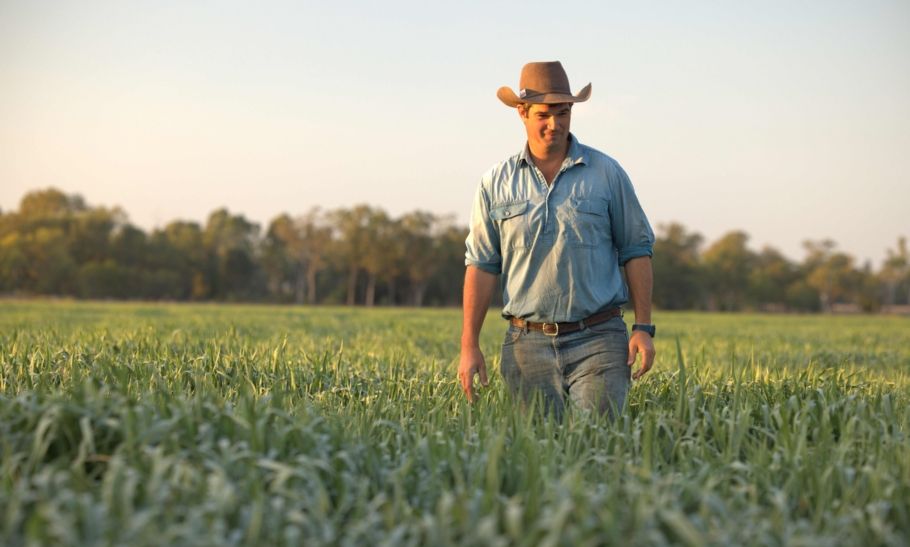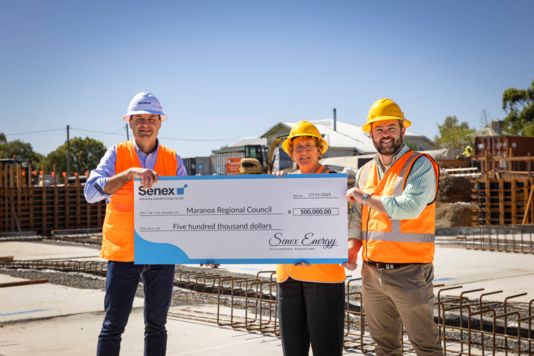Case Study:
As Senex operations expand, so too does our commitment to finding productive and sustainable uses for water produced through the natural gas production process.
Following the successful water supply partnership with Maranoa grazier Trevor Kehl to use produced water from Senex’s Roma North operations for irrigation, Senex has entered into a water agreement connected to its Atlas development.
In 2021, Senex commenced a long-term water supply agreement with the Worsfold family in Wandoan to use irrigation water from Atlas’s natural gas wells.
While in its early stages, arrangements between Senex and the Worsfold’s are seeing 105 hectares of oats and sorghum under irrigation, used to feed cattle.
Under the agreement, Senex worked with the landholder to deliver the irrigation infrastructure including transfer pipes, a 100ML on-site storage dam and four centre pivot irrigators to utilise water from the Senex water treatment plant.
Access to reliable and consistent water for irrigation provides certainty now and in drier times.
Third generation Santa Hereford-cross farmer Col Worsfold (pictured) said it was a relief to see the oats crop harvested and now bailed up and in storage for when times get tough.
“Knowing we have feed in the sheds ready for when it inevitably dries out offers great peace of mind,” Col said.
“Getting access to water from these wells for our crops is like winning the lottery — right time, right place and right company.
“Working with Senex has been enjoyable and we look forward to continuing this partnership into the future,” he said.
For Senex, the agreement means water produced from the Atlas project is being beneficially used to increase agricultural productivity and providing opportunity with reuse of a precious resource.
Senex Chief Executive Officer Ian Davies said he was extremely proud of the relationship and results so far, and hopes this will be just the start.
“Senex is committed to using produced water from our operations in a sustainable, beneficial, and productive manner. These kinds of partnerships are common sense and demonstrate real co-existence. When you get the formula right between the gas company and the landholder, both parties can really win,” Mr Davies said.


